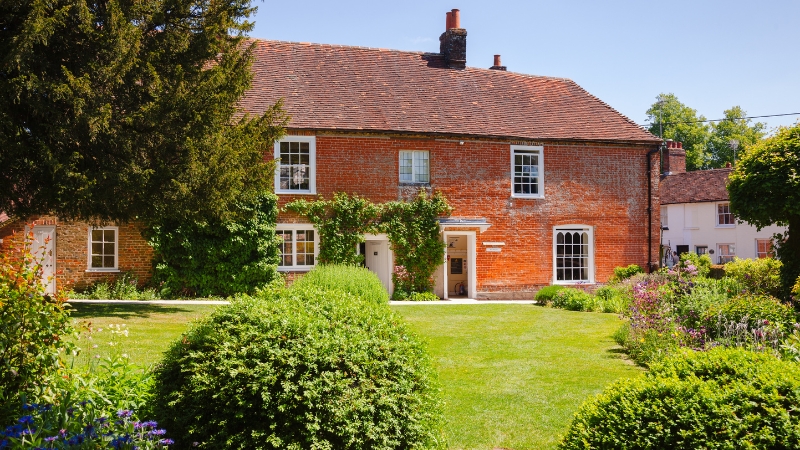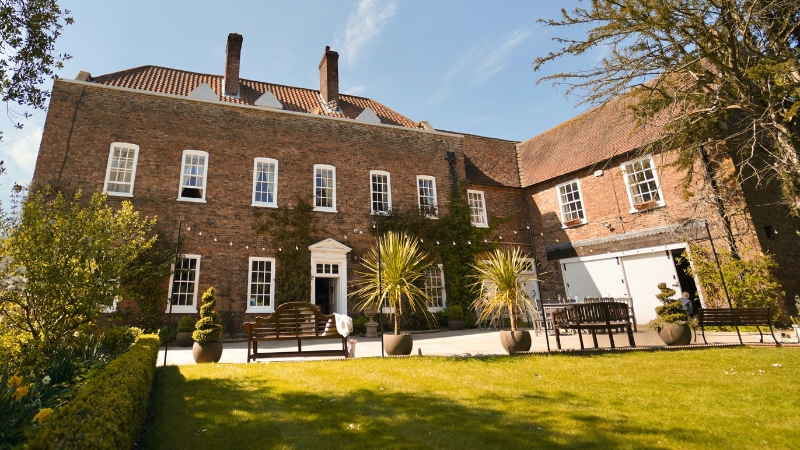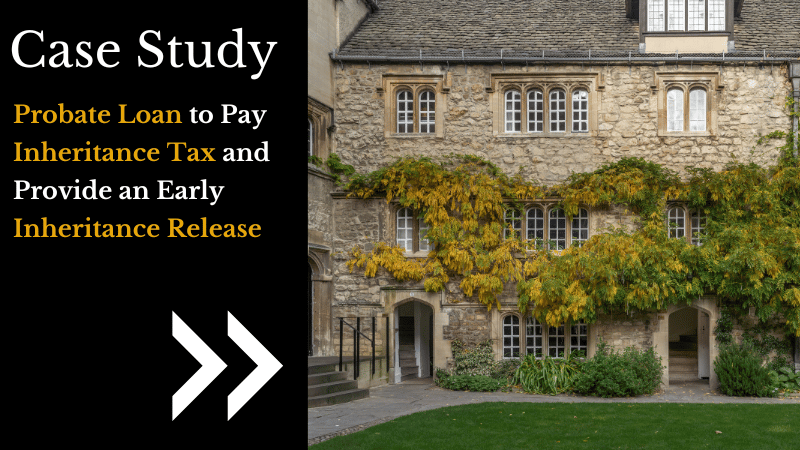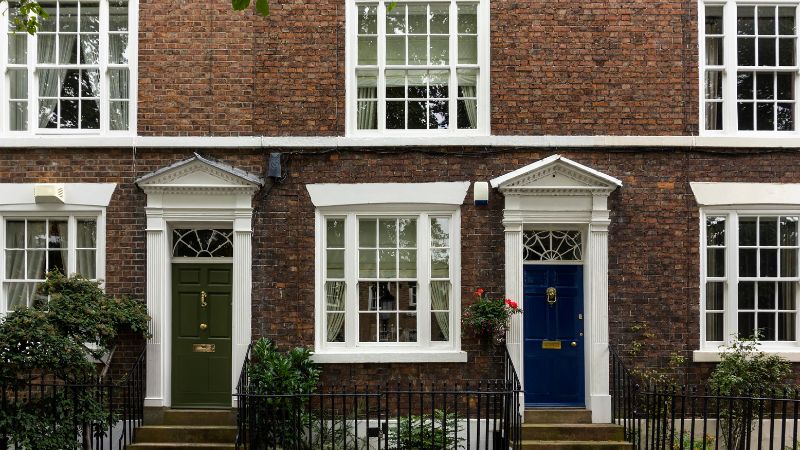Categories
Inheriting a House: What You Need to Know

Inheriting a house can be extremely complicated. From the worry of inheritance tax to the potential for disagreements between family members, there’s a lot that goes on behind the scenes of a house inheritance that can make this financial windfall feel more like a burden than a benefit.
In this guide, we'll cover the best ways to deal with each of the main concerns that impact your inheritance, and explore the range of financing options available to streamline the process, sidestep probate delays and smooth out any familial disputes.
Inheritance Tax
The first financial consideration and typically the biggest worry when inheriting the house is ‘what about inheritance tax?’ This headline-grabbing obligation is much misunderstood, so how does it really work and what can you do?
Will You Have to Pay Inheritance Tax?
Inheritance tax (IHT) is calculated based on the value of the property. There’s a threshold under which you do not have to pay any inheritance tax, known as the nil-rate band, and you pay 40% above that the threshold. The nil-rate band is currently set to £325,000.
There are two important factors that mitigate that basic rule:
- You do not pay inheritance tax if you are the spouse of the deceased - Property passing between married couples or those in a civil partnership does not incur any inheritance tax.
- The threshold is raised if you are a child or grandchild of the deceased - If you inherit from your parents or grandparents, the threshold is £500,000 rather than the basic nil-rate band. This includes step-children, adopted children, and foster children.
As an example, a house valued at £680,000 that is passed to two adult grandchildren of the deceased would be taxed at 40% of £180,000, for a total of £72,000. Inheritance tax must be paid within six months of the death and is handled by the executor of the will.
How to Deal with Inheritance Tax
Paying inheritance tax can be difficult and stressful, especially if there isn’t suitable cash capital in the estate to cover the bill (and remember, that capital will also be liable for IHT!). Quite often, the only significant asset passed on is the house, with little liquid cash available alongside.
Selling the house is not the only solution, however. Funding options exist that can help you meet the IHT obligation. These include:
- Bridging finance - A bridging loan is short-term finance that is quick to arrange and will cover the IHT bill in full, giving you the time you need to secure longer-term lending such as a mortgage. Bridging finance is designed to fill a funding gap and should not be considered a long-term solution.
- A probate loan - A probate loan is similar to a bridging loan, but can take into account broader assets within the estate than just property, and can be more flexible and apropriate for specific IHT cases. Read more on probate loans.
- A mortgage - Mortgages can take time, but if initiated early or used in conjunction with bridging finance, can provide an excellent long-term solution.
- Secured homeowner loan - A homeowner loan that uses the inherited house as security can be set up as mid-term financing rather than a mortgage. With a shorter repayment schedule and quicker application process, homeowner loans provide an excellent solution for those looking to pay off the inheritance tax in a few years, without going through the more complicated mortgage process.
At Clifton Private Finance, our property finance specialists will work with you to put in place the funding you need to cover the inheritance tax in full, ensuring your inherited property is not at risk to pay this onerous obligation.
More Case Studies
Buying Out Siblings
Often, houses are inherited by multiple family members, typically siblings or cousins, yet what happens when the interests and plans for the inheritance of those beneficiaries are different?
It is common that one or more of the beneficiaries wants to sell, while another is keen to keep the house, either to move into it, or because they see a rental opportunity they’d like to pursue. What do you do if you’re the one who wants to keep the house when your brother or sister wants to sell? Finance offers solutions.
Get started with our calculator
If the situation is amicable, then it is likely that your co-beneficiaries will give you the time needed to secure a mortgage at a competitive rate - whether that’s a primary residential mortgage so you can move in, or a buy-to-let mortgage with an eye to becoming a landlord.
- You will often be able to use the equity in your inherited house as the full deposit, so the limitations on your obtaining the mortgage are tied to your credit history and affordability tests. Clifton Private Finance are here to help you get the mortgage you need - read our comprehensive breakdown of affordability tests to understand how these are calculated and contact our specialist mortgage team for a mortgage to suit your circumstances.
Should there be some tension between you and the other beneficiaries that requires a faster solution, bridging finance can provide the capital you need to buy out the other parties before the conflict escalates. With a clear exit strategy developed around a future mortgage, Clifton Private Finance can help you obtain cost-effective bridging finance that separates you from the obligation to your siblings within weeks. Speak to a bridging expert at Clifton Private Finance to structure finance that best benefits your situation.

Renovating Your Inherited Property
Inherited properties can come into your hands in poor condition, requiring renovations and modernisation to bring them up to current specifications and expectations. Finance exists to help you pay for that work and get the building up to standard.
If the house is in serious need of repair, such that it would be deemed uninhabitable, then a mortgage may be out of reach - for security and risk assessment, mortgage lenders look for properties that can easily be resold. Thankfully, a range of other financing exists:
- Bridging finance - Once more, bridging finance can offer the solution. Often used to fund renovations on properties, a bridging finance package can provide the capital needed to get works going immediately, quickly getting the house to a habitable standard at which point the finance can be replaced with a standard mortgage or the property can be sold on.
- Secured homeowner loan - A secured loan may be possible depending on the state of the house and its viability as security. With different criteria to a primary mortgage, homeowner loans can be more flexible and provide the funds for renovation with a mid-term monthly repayment structure that fits your budget.
- Unsecured loan or credit cards - If the level of renovations is moderately low, totalling less than £25,000, applicants with a strong credit rating may be able to obtain adequate unsecured lending, such as through a personal loan or with credit cards.
- Primary home remortgage - While it may be difficult to get a mortgage on the inherited property, if you already own a home you may want to consider a remortgage secured by your main home to pay for the renovations. This has the advantage of lower interest rates and may even lower your current mortgage repayments depending on market forces and your potentially improved equity and credit standing.
- Specialist BTL mortgage with renovation allowances - Specialist mortgages for landlords can sometimes come with a defined sum for funding renovations. Clifton Private Finance can help you prepare a comprehensive business plan and forecast that considers future rental yield to maximise your chance of a successful application.

Becoming a Landlord
If you’re looking at keeping your inherited property as a rental or holiday let, then you will need to look at a buy-to-let (BTL) mortgage or specialist holiday let mortgage rather than a standard residential mortgage. These mortgages are often interest only, with low monthly payments for higher rental profits.
At Clifton Private Finance we can help you develop your rental plans and secure a specialist mortgage that is structured to get the best return from your newly inherited property.
Paying Off a Lifetime Mortgage or Equity Release Loan
Equity release, including lifetime mortgages, is an increasingly common way for homeowners to release money from their home for use in retirement and later in life.
However, while selling the home to pay the equity release loan is the primary strategy for equity release providers, it is not the only option available. If you inherit the property and are keen to keep it, then you may want to pay the equity release through other means.
Most equity release providers offer a reasonable window for repayment of 12 months from the date of death, giving the executor of the estate time to sell the property at market value before repaying the loan, but this 12 months can go rapidly with legal and administrative delays, so acting with speed is essential if you want to avoid losing the property.
If you want to keep the house, speak to a Clifton Private Finance advisor immediately. We can help by investigating your options and finding the funding needed to repay the equity release provider within their timeline, including:

A full mortgage application - With the lowest rates and most affordable repayment structure, a standard mortgage remains the best finance solution to repay equity release. If the process is begun early enough, securing a mortgage with help from us at Clifton Private Finance will be smooth and cost-effective.

Combined funding solutions - The money to repay the equity release doesn’t need to come from a single source. At Clifton Private Finance, our experts can work with you to combine multiple funding streams to cover the full value of the equity release. This may include:
- Personal savings
- Remortgage on previously existing property
- Sale of existing property (for example, if wanting to move from a smaller home to the newly inherited one)
- Combined applications (if beneficiaries are working together to pay off the equity release)
- Secured loans and homeowner loans
Combined funding solutions can even include exploring a level of equity release on your main property if you are eligible (over 55). Working together, we can develop a comprehensive plan that provides the capital needed as efficiently and cost-effectively as possible.

Bridging finance - Though unsuitable as a long-term solution, bridging finance can help you meet the equity release provider’s timescale if it becomes difficult to put other funding in place, such as a primary mortgage, before the deadline.
Considering Probate Delays and Funding Timelines
Securing the finance you need to get the most out of your inherited home isn’t just about the money, it is also about time.
The probate process, which encompasses the legal work to transfer ownership of the property from the estate to you, can sometimes take many months. During this time, you may not be able to access, sell, or - importantly - borrow money against the inherited property.
This can cause additional worry and stress as funding that can seem almost within your grasp is held out of reach. Clifton Private Finance can help. We can explore the range of options available, including lenders willing to secure lending and bridging finance based on anticipated inheritance.
See beneficiary loans and executor loans.

Securing Funding on Inherited Property with Bad Credit
An inheritance is often seen as a lifeline for those struggling with their finances. However, it is only natural to worry that your existing credit difficulties will impact your funding options even once the house is inherited.
With equity in the inherited house, your profile improves immediately, allowing us to explore a wider range of options to find the solutions to fit your need.
- It’s essential that you are open and honest in your financial conversations, giving our advisors all the information they need to evaluate your true position and work accordingly.
- Don’t fear that bad credit will prevent you from achieving your aims with your inherited home - speak to an advisor today to properly understand your position.
Using the Inherited House as Deposit for A New Home
You may not be looking to live in your inherited house but would rather leverage it to secure a more suitable new home.
- Keeping the property as a let - You can use the equity in your inherited home while you rent it out, using that security as a deposit on a new house.
- Accessing equity before selling the house - If you plan to sell the property in the long term but are looking to buy a new home as soon as possible, bridging finance can be secured against the inherited property, giving you the buying power and flexibility you need to get the home of your dreams.
Your inherited house can give you the flexibility needed to relocate, upsize, or downsize comfortably, with finance providing the support that allows you to keep moving forwards while waiting for the best offer on the house.
Making the Right Choices with Clifton Private Finance
Inheriting a house opens up your financial options, providing you with a range of choices and opportunities that may have previously been out of reach. Working together with us at Clifton Private Finance, you can get flexibility and a better understanding of those choices, ensuring you make informed decisions that are right for you and your future.
Whether you are looking to move into your inherited home and buy out your siblings to make it truly yours, join together as landlords with an income for the rest of your life, or want to leverage your equity in the property to propel your dreams forward, we can help.
The Clifton Private Finance mortgage and bridging finance teams have all the expertise you need. Get in touch today to speak to a specialist.



















